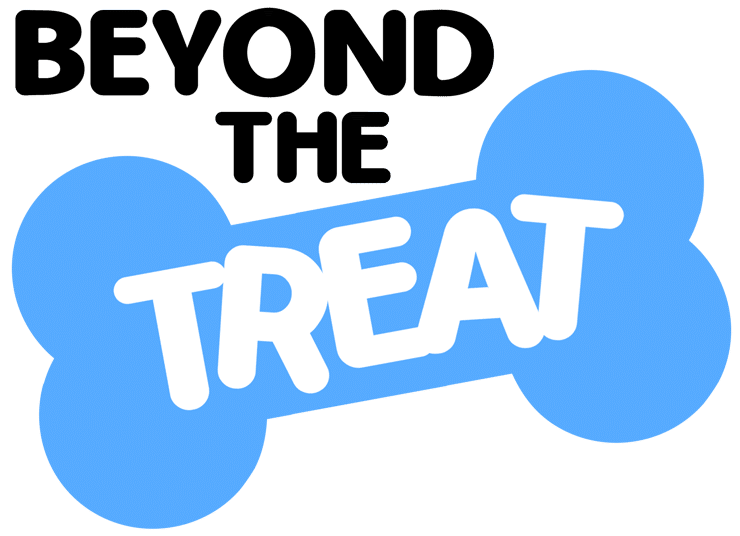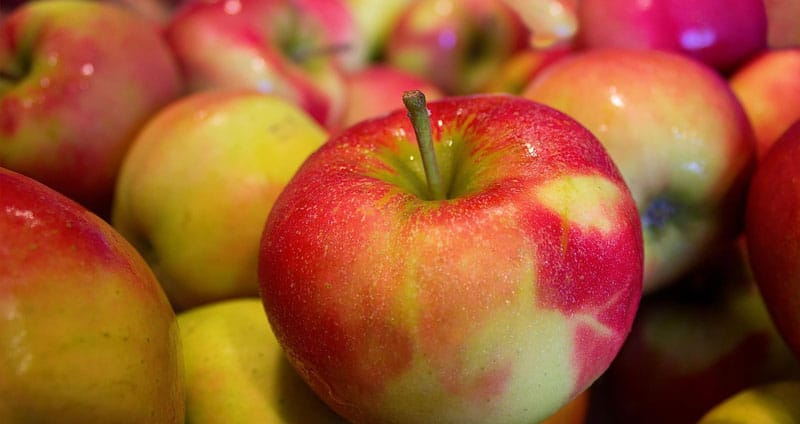One of the most popular fruits in people’s diets is an apple, and it’s clear why that is. This fruit, highlighted in the saying “an apple a day keeps the doctor away”, is not only delicious, but it also has quite a few health benefits. Apples are excellent sources of dietary fiber, antioxidants, flavanoids, and a bunch of other vitamins and minerals that are great for humans. With all of the benefits that come with apples, you may be wondering: Can hamsters eat apples?
In short, yes, you can and should feed your hamster apples as an occasional snack. Apples make for a nutritious and delicious snack for hamsters that they go absolutely crazy for. However, they must be fed in moderation, as there are some drawbacks that should be avoided.
Table of Contents
What Do Hamsters Eat In The Wild?
In order to determine whether or not apples are good for hamsters, it helps to know what the diet of a wild hamster consists of. Hamsters have only been kept as pets for around 100 years. This means that for thousands of years, they’ve been free to roam throughout Belgium, Romania, China, Syria, and Greece. During this time, their digestive systems have gotten really efficient at digesting and processing the food that they most commonly eat.
This is why matching your hamster’s diet to their natural diet is such as important part of hamster ownership. Their bodies are designed in specific way, so you need to play into that!
The overall diet of a hamster is omnivorous, but it’s actually quite similar to the diet of a standard herbivore. So, wild hamsters eat a wide variety of different foods to get their necessary nutrients, while most of that food ends up being plant matter. Therefore, wild hamsters have diets that are primarily made up of a mix of nuts, grains, and the occasional fruit and vegetable.
In the wild, hamsters scavenge for their food, running around and eating basically anything that they can find. The specific diet of a wild hamster does differ based on the exact region that they’re located in, but they all eat the same general foods. The staple foods of a wild hamster’s diet are seeds, grains, nuts, fruits, vegetables, cracked corn, insects, lizards, and frogs.
Health Benefits & Dangers Of Apples
When you look at the diet of a wild hamster, apples seem like they fit right into it! While hamsters don’t have a lot of access to apples in the wild, they do eat many fruits and vegetables that are similar in nature, allowing them to properly digest apples. However, this doesn’t mean that apples should be fed frequently.
You may notice that a wild hamster’s diet is quite lacking in sugar. Yes, they do eat the occasional fruit and vegetable that contains sugar, but their daily intake of sugar is quite low. Because of this, hamsters don’t have bodies that can process and deal with large amounts of sugar, so they can’t eat many sugar-rich foods. Unfortunately, apples do contain decent amounts of sugar.
If you feed your hamster a diet that’s high in sugar, they won’t face immediately consequences unless the amounts are immense. Instead, they react much like humans to excess sugar consumption — they gain weight. Of course, a chubby hamster is adorable to look at, but it can bring about quite a few health problems. Many of these health problems will absolutely lead to an early death in your hamster.
Yes, apples do contain sugar, but that doesn’t mean they don’t make for a great occasional snack! Hamsters love the taste of apples, and they can absolutely benefit from the plentiful nutrients that are present. Apples are tasty and nutritious for hamsters, so they make for a great snack when fed properly.
How To Properly Feed Your Hamster Apples
Apples make for a fantastic snack, but the main reason why they’re not perfect is because they’re decently high in sugar. Hamsters don’t have the ability to effectively handle a lot of sugar, so their diets must not contain large amounts of it. Therefore, apples can make for a great snack, but they need to be fed to hamsters in moderation.
The best frequency for apple feeding is a small piece of apple given 2-3 times per week. A “small piece” of apple would be a little bit smaller than a hamster’s head. This amount is generally very safe to feed hamsters, but it’s still enough to keep their diets interesting and healthy. These pieces of apple can either be cut up or given whole, as long as the toxic seeds are removed first.
If you make the decision to feed your hamster apples, you need to make sure that their dietary needs are being met first. Apples do contain some excellent nutrients, but they can’t be treated as a staple food in a hamster’s diet. So, you need to look towards other means to provide your hamster with the nutrients that they need.
Any healthy hamster’s diet should be primarily made up of a high-quality pellet or mixed food. These foods have been constructed especially for hamsters, and they’re a necessity if you want your hamster to be happy and healthy. Not only are they tasty and interesting to eat, but they also contain most of the essential nutrients for a hamster’s diet.
Once your hamster is having their nutritional needs met, then you can focus on supplementing your hamster’s diet with foods such as apples.
Ways Hamsters Can Eat Apples
Apples do make for a great snack, but they can get a bit boring if that’s all that you’re feeding your hamster! Fortunately, apples can be served in several different ways — ways that help keep your hamster’s diet interesting and delicious. Below we’ve listed out the most popular way that apples are eaten, in addition to whether or not they’re safe for hamsters.
- Fresh apples – This is the standard way that apples are eaten, and it’s a great way to give your hamster apples! Fresh apples make for a healthy and nutritious snack that can be purchased from an organic market or grown in your own backyard. These can be fed 2-3 times per week with the seeds removed. Be aware that uneaten fresh apples should be cleaned out of your hamster’s cage very soon, as they can start to go bad and cause health problems.
- Dehydrated apples – Dehydrated apples are just apples that have had about 90-95% of their water removed from them! This makes for a fun and unique snack that hamsters go crazy for. They can be made very simply with a food dehydrator, so it’s quite a common snack among hamster owners. Do note that with the lower water content, there is a much higher density of sugar in these apples. Therefore, dehydrated apples need to be fed less than fresh apples to keep your hamster healthy.
- Dried apples – These are essentially dehydrated apples that have had a bit more water removed — basically all of it. Dried apples are commonly referred to as apple crisps, as they’re made by placing apple slices into an oven until they’re crispy. They make for great snacks that are also very easy to make. The sugar content is also high in this form of apple, so serving sizes should be reduced. Additionally, it’s best if you make these yourself, as store-bought apple crisps commonly contain lots of added sugar.
- Apple juice/sauce – While both of these are very tasty, neither of them are safe for hamsters. Apple juice and apple sauce both contain very high amounts of sugar while lacking a good portion of the nutrients that come from fresh apples. Avoid these foods altogether and stick to the three apple products above.
Good Apple Alternatives For Hamsters
It’s clear that apples do make for a great snack for hamsters. However, they’re certainly not the best thing that you can be feeding your hammy. There are dedicated hamster treats available that deliver more nutrients in an equally-tasty package. Below are two of our favorite commercially-available hamster treats.
OUR RECOMMENDATION
Supreme Tiny Friends Farm Lovelies Treats
Some of the most popular hamster treats by far are these Tiny Friends Farm Lovelies.
These treats are made from only a handful of natural ingredients that are healthy and quite tasty.
Just 2-3 of these treats given a week is enough for your hamster’s diet to stay unique, tasty, and nutritious.
OUR RECOMMENDATION
Brown’s Tropical Carnival Natural Select
An alternative to a processed hamster treat is a bagged mixture of seeds, and this is one of the best.
This bag contains several seeds that hamsters would naturally eat, such as pumpkin and sunflower.
2-3 seeds per day keeps hamsters more than satisfied while also promoting excellent dental health.



